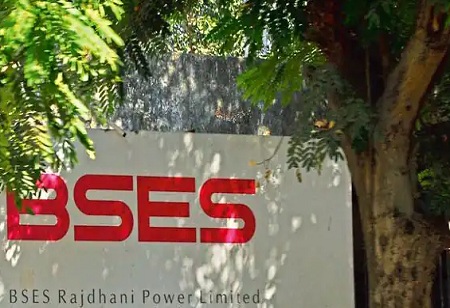
The progressive implementation of their ambitious Smart Metre project is expected to result in a spectacular digital transformation for Rajdhani Power Limited (BRPL) and BSES Yamuna Power Limited (BYPL). In order to promote BSES as India's first fully digital utility, this project attempts to outfit it with smart metres. The project is now in the tendering phase, which is expected to be completed by July 2023.
In order to complete the deployment of 5 million pre-paid/post-paid smart metres by FY 2024–25, BSES expects to start on-the-ground implementation in the 2023 September–December quarter. The goal of BSES is to use its expanded specifications and operational scale to achieve per node lifespan costs that are comparable to or lower than prior utility tenders in order to guarantee a cost-effective system. The BSES Smart Metre project's delivery of a more effective and affordable system to its 5 million customers is one of its main objectives.
Per node lifecycle costs have been found to range between Rs 11,000 and Rs 11,500 in recent utilities tenders, including BEST Mumbai and Bihar. BSES hopes to make this project very cost-effective due to its greater needs and operational size. In response to questions on the business's smart metering initiative, a BSES spokeswoman stated, "We are a committed world-class smart power distribution company working in the interest of 5 million consumers and 20 million residents of Delhi."
One of the largest projects undertaken by BSES discoms, which have a turnover of over Rs 16,000 crore and a cash Ebitda of Rs 2,500 crore, the anticipated investment for this project is expected to range between Rs 5,000 crore and Rs 6,000 crore. BSES is collaborating with a number of manufacturers and system integrators of smart metres in order to guarantee the service's dependability and quality.
The identities of these partners will be made public when appropriate. Notably, well-known metre producers like Genus, Secure, and HPL, as well as technology firms like EDF, have already expressed a strong interest in the ongoing procurement process. The Delhi Electricity Regulatory Commission (DERC) and the Ministry of Power advocate the operational expenditure (opex) model, which is used in the BSES Smart Metre project.
The integration of mobile applications with smart prepaid metres, which offer both pre- and post-paid alternatives, will give consumers unprecedented control over their energy use. These metres do more than just record usage; they also let customers manage bills, evaluate consumption trends, pay bills online, and interact with new energy management tools. In essence, it works like a remote control for your electricity.
We use cookies to ensure you get the best experience on our website. Read more...